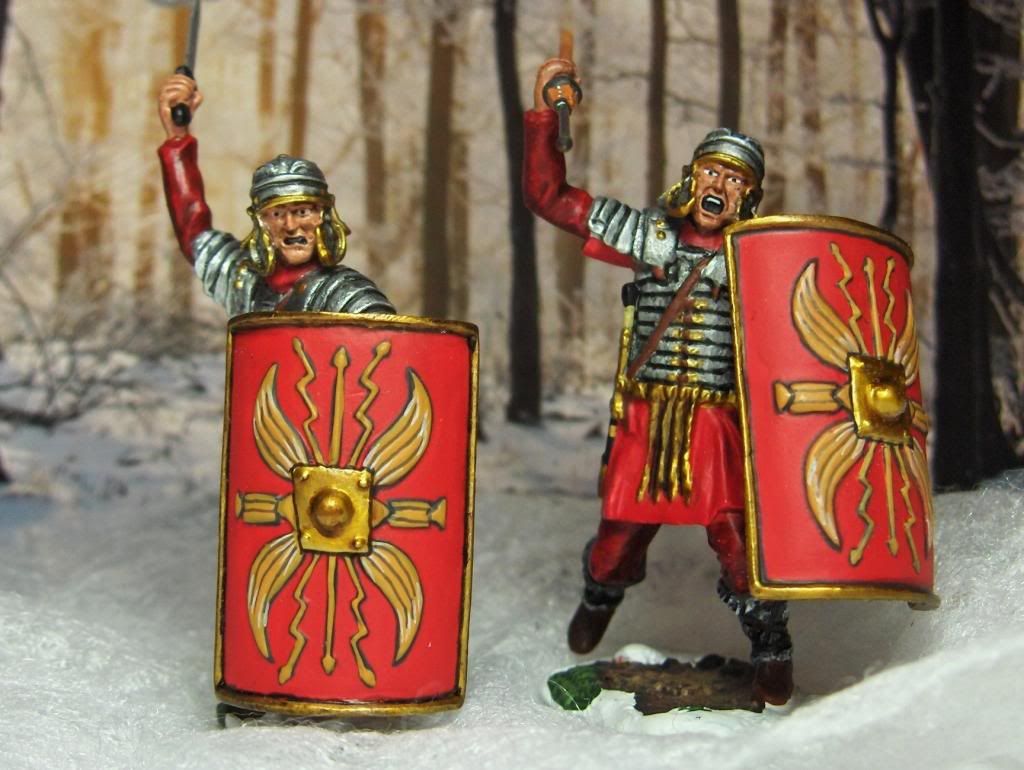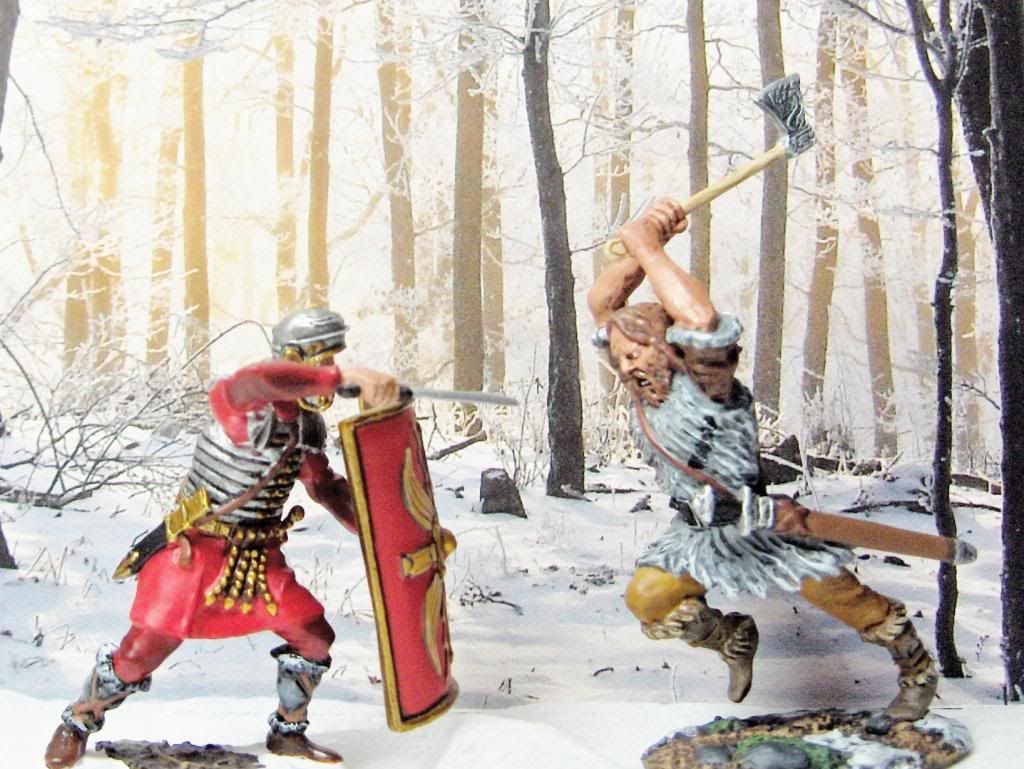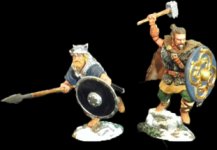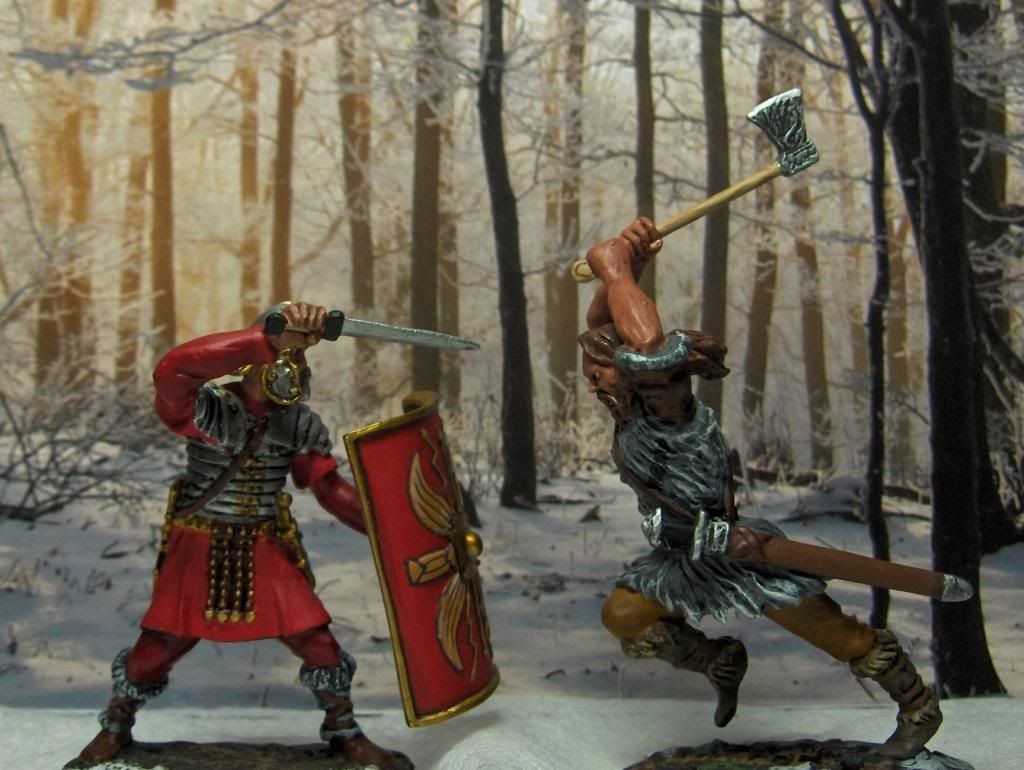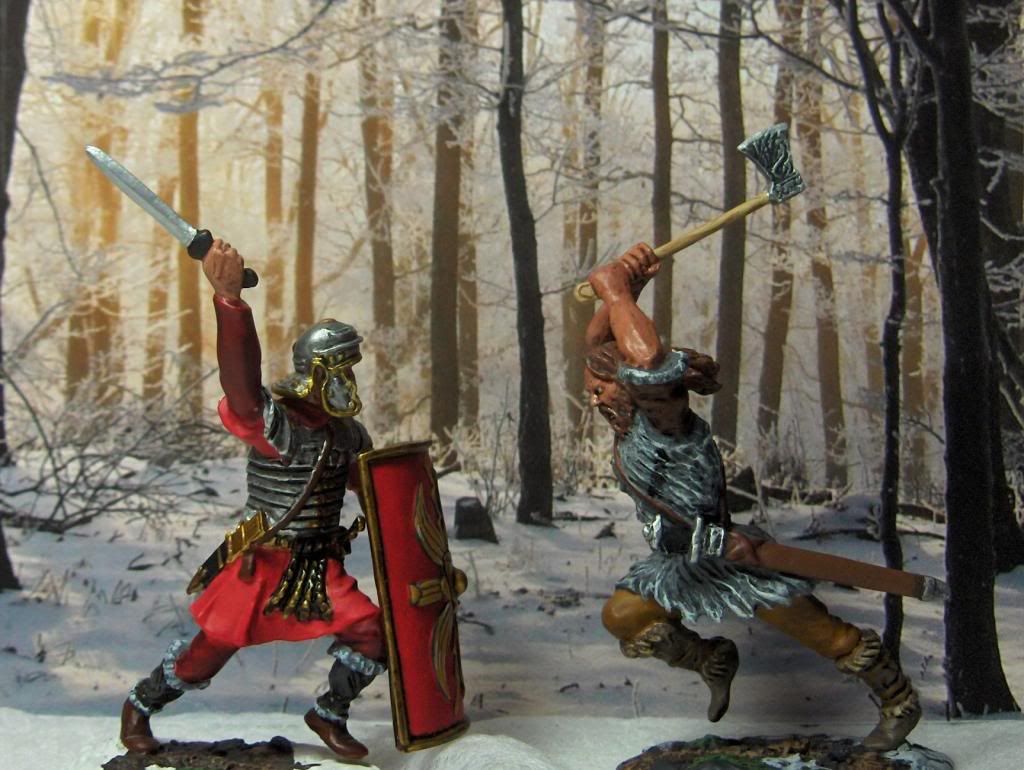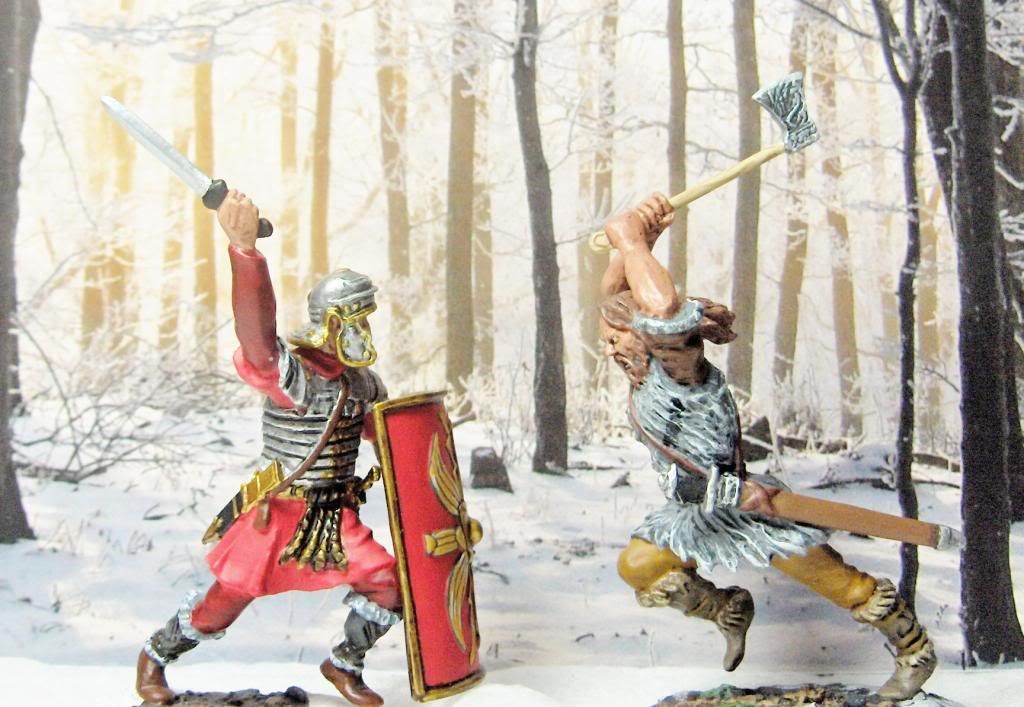The Origin and Situation of the Germans (98)
http://en.wikisource.org/wiki/Germania#XLVI
and ...
http://www.gutenberg.org/files/2995/2995-h/2995-h.htm
"VI
Even iron is not plentiful with them, as we infer from the character of their weapons. But few use swords or long lances. They carry a spear (framea is their name for it), with a narrow and short head, but so sharp and easy to wield that the same weapon serves, according to circumstances, for close or distant conflict. As for thehorse-soldier, he is satisfied with a shield and spear; the foot-soldiers also scatter showers of missiles, each man having several and hurling them to an immense distance, and
being naked or lightly clad with a little cloak. There is no display about their equipment: their shields alone are marked with very choice colours. A few only have corslets, and just one or two here and there a metal or leathern helmet."
"..Neither in truth do they abound in iron, as from the fashion of their weapons may be gathered. Swords they rarely use, or the larger spear. They carry javelins or, in their own language,framms, pointed with a piece of iron short and narrow, but so sharp and manageable, that with the same weapon they can fight at a distance or hand to hand, just as need requires. Nay, the horsemen also are content with a shield and a javelin. The foot throw likewise weapons missive, each particular is armed with many, and hurls them a mighty space, all naked or only wearing a light cassock. In their equipment they show no ostentation; only that their shields are diversified and adorned with curious colours. With coats of mail very few are furnished, and hardly upon any is seen a headpiece or helmet..."
"XVII
They all wrap themselves in a cloak which is fastened with a clasp, or, if this is not forthcoming, with a thorn, leaving the rest of their persons bare. They pass whole days on the hearth by the fire. The wealthiest are distinguished by a dress which is not flowing, like that of the Sarmatae and Parthi, but is tight, and exhibits each limb. They also
wear the skins of wild beasts; the tribes on the Rhine and Danube in a careless fashion, those of the interior with more elegance, as not obtaining other clothing by commerce. These select certain animals, the hides of which they strip off and vary them with the spotted skins of beasts, the produce of the outer ocean, and of seas unknown to us. The women have the same dress as the men, except that they generally wrap themselves in linen garments, which they embroider with purple, and do not lengthen out the upper part of their clothing into sleeves. The upper and lower arm is thus bare, and the nearest part of the bosom is also exposed."
"..For their covering a mantle is what they all wear, fastened with a clasp or, for want of it, with a thorn. As far as this reaches not they are naked, and lie whole days before the fire. The most wealthy are distinguished with a vest, not one large and flowing like those of Sarmatians and Parthians, but girt close about them and expressing the proportion of every limb. They likewise wear the skins of savage beasts, a dress which those bordering upon the Rhine use without any fondness or delicacy, but about which such who live further in the country are more curious, as void of all apparel introduced by commerce. They choose certain wild beasts, and, having flayed them, diversify their hides with many spots, as also with the skins of monsters from the deep, such as are engendered in the distant ocean and in seas unknown. Neither does the dress of the women differ from that of the men, save that the women are orderly attired in linen embroidered with purple, and use no sleeves, so that all their arms are bare. The upper part of their breast is withal exposed..."
Maybe, but Conte's interpretation is a stretch of these translations of Tacitus.
